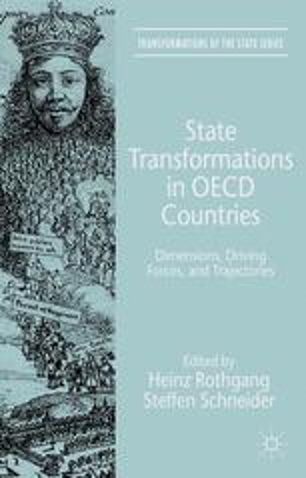Abstract
The possible development of a European public sphere is a special challenge for research on transformations of the state in Europe. Undoubtedly, the supranational regime of the European Union (EU) is a major expression of the transformations of the state and the transnationalization of politics in Europe. Current political theory argues that supranational institutions are faced with various legitimation problems (Habermas 2009a; Scharpf 2009). In addition to elections, a functioning ‘public sphere’ is often seen as a prerequisite of political legitimacy. The EU must, then, be underpinned by a ‘European public sphere’ to be legitimate. However, any attempt to capture this phenomenon solely with concepts gleaned from analyses of national public spheres is bound to fail: There is no Europe-wide system of political media and no shared language, but rather a plethora of divergent media regulations and languages, and there are only a couple of transnational European media (Gerhards 2001; Hallin and Mancini 2004; Hardy 2008; Brüggemann et al. 2009). Measured against the benchmark of national public spheres, the European public sphere is therefore automatically found wanting, or even deemed inexistent (Baisnée 2007). We develop a more balanced view. Our starting point is a European public sphere that differs from national public spheres precisely because it contains various languages, media systems and media organizations. With other researchers (Eilders and Voltmer 2003; Kantner 2004; Trenz 2004; AIM Research Consortium 2006; de Vreese 2007; Preston and Metykova 2009; Koopmans and Statham 2010), we share the fundamental position that the European public sphere needs to be analysed as a process of transnationalizing national public spheres and cannot be described and understood as an independent unit. However, transnationalization is not a linear and directed process, but in various ways a contradictory one.

Hepp, Andreas; Kleinen-v. Königslöw, Katharina; Lingenberg, Swantje; Möller, Johanna; Brüggemann, Michael; Offerhaus, Anke (2015): Cultures of Political Discourse in Europe. Explaining Multiple Segmentation in the European Public Sphere. In Heinz Rothgang, Steffen Schneider (Eds.): State Transformations in OECD Countries. Dimensions, Driving Forces and Trajectories. Basingstoke / New York: Palgrave Macmillan, pp. 145–166. Available online at https://doi.org/10.1057/9781137012425_8.
